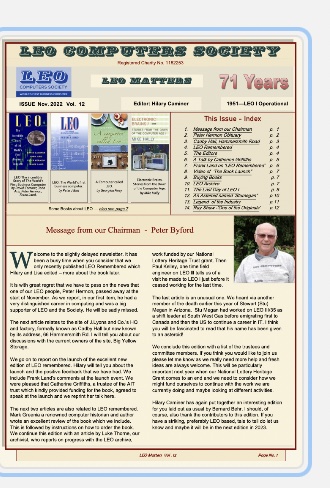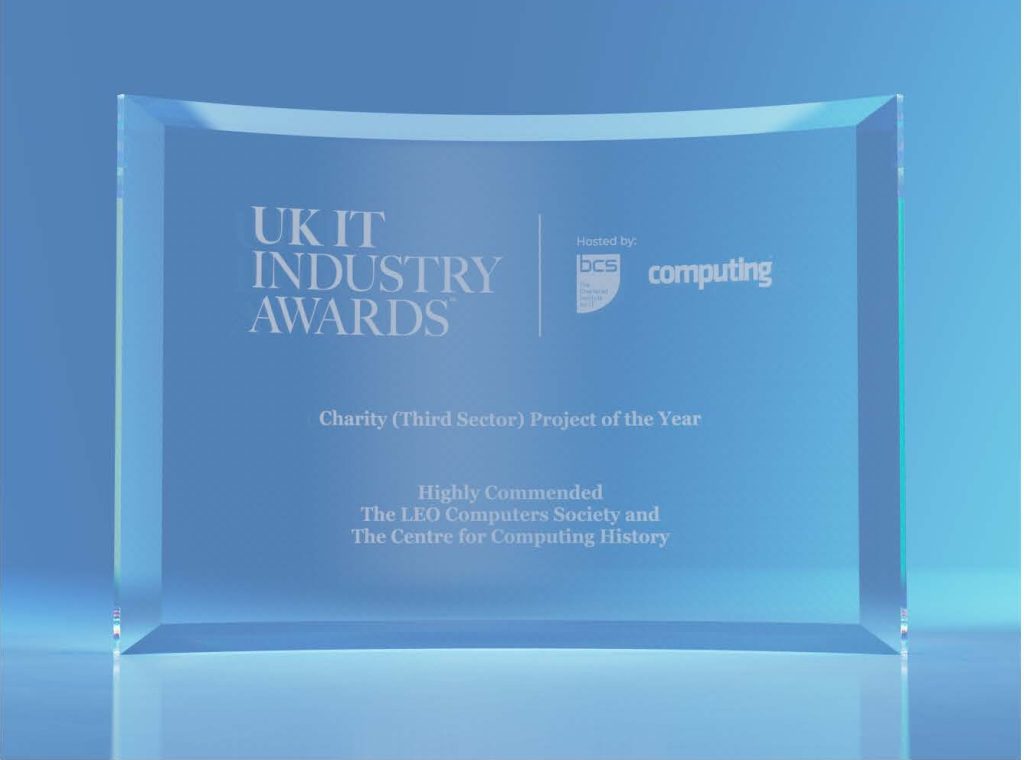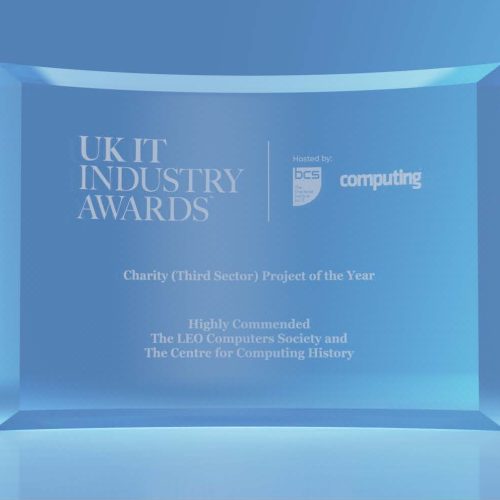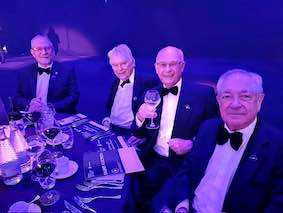December 23
Since 2018 the Cambridge-based Centre for Computing History (CCH) has been working in partnership with the LEO Computers Society on a lottery-funded project to provide a long-term, centralised home for the society’s historically important and internationally significant heritage relating to LEO (Lyons Electronic Office), the world’s first business computer, so that the collection is accessible to the public.
The lottery project ended formally in June this year, but the cooperation of the two organisations continues. The result to date is that the Cambridge centre now looks after many thousands of individual items – as well as their newly created digital equivalents – and the partners continue to promote the LEO story in various ways. Their most innovative approach is an award-winning digital ‘rebuild’ of the original LEO, available both in a display at CCH and, in a major step forward in opening up access from anywhere in the world, via tablet devices.
The virtual LEO is an historically accurate digital representation of the first LEO machine. Unlike a physical rebuild, it also points to the social context of post-war London and the Lyons company context within which LEO I was constructed.
And because the staff of J Lyons & Company and LEO Computers Limited were meticulous record keepers, recording not just decisions at every step of the journey, but the reasons for those decisions and their consequences, the museum has been able to cast the collection in a wider social context, bringing the human and social stories involved to the fore.
The virtual LEO app is already picking up industry awards, most recently last month when it achieved a ‘highly commended’ in the charities category of the British Computer Society’s UK IT awards, a glitzy affair held annually to reward achievements across the IT industry.
For further details on what the app is and how to download it, visit the LEO I website https://www.leo1.co.uk/
Virtual LEO I
In May this year, a PC-based version of the virtual LEO was installed at the Centre for Computing History and Dr Lisa McGerty, Chief Executive of the museum and the project’s lead commented, “Watching visitors of all kinds use it since then has been a real joy for me. And now, the virtual LEO has also been made available for access from the ubiquitous Apple iPad and the new app is going down a storm.”
Using either version of the virtual LEO, it is possible to ‘wander around’ the LEO room in Cadby Hall, the former Lyons’ HQ complex in Hammersmith, and view the racks of valves, hear all the peripherals and even look out of the window at the 1950s smog. Within the app, there are 35 interactive objects that can be ‘picked up’ and explored, and there are 44 documents, six film snippets and many photos from the archive, accompanied by over 40,000 words of explanatory text divided into six themes. It has been purposely designed in layers so that it is perfectly possible just to walk around the room and see and hear what it was like to operate the first LEO, or one can dig deeper into the wider story.
An Android version of the app is also currently in development and is planned for release shortly.
In a further comment, Hilary Caminer, the LEO Society’s secretary expressed her own amazement in saying: “I think it is a remarkable feat to put that enormous, epoch-making and room-sized early mainframe on to a palm-sized tablet. What would those early pioneers have thought and said?”
Other highlights of the collection
Over the course of the project, there were more than 50 separate deposits of LEO material made to the Cambridge museum by LEO Society members, some consisting of a single document or photograph, but the majority were of multiple documents – in some cases boxes of them – and there were some objects too, such as small pieces of various LEO machines including tape reels and logic boards.
These have been catalogued, digitised and in some cases transcribed, making more than 1,600 separate items available online to all, via the CCH website. These incorporate almost 13,000 scanned pages of documentation in total. On the CCH website these sit alongside the CCH version of the LEO Society’s Leopedia database, extending that resource in a wholly searchable and search engine optimised way. Whereas Leopedia lists references to secondary sources of information on LEO in books, journals and in the media, the archive catalogue lists and makes available the primary material.
The digitised LEO collection and the CCH version of Leopedia can be found athttps://www.computinghistory.org.uk/pages/52267/LEOPEDIA/..
Finding aids are also available and are being extended all the time so that the collection can be searched easily by people who know nothing about LEO – for example by subject – see https://www.computinghistory.org.uk/det/55802/explore-our-leo-computers-collection/.
The archive includes reports from visits Lyons staff made to Cambridge at the very beginning of the Lyons-Cambridge University partnership during the development of EDSAC; photographs of the construction of LEO I, particularly those that point to the experimental nature of the early machine; a memo from TR Thompson reporting on the first fully successful and complete run of the world’s first commercial computer job, Lyons Bakery Valuations, which was completed at 2:35pm on 30th November 1951; extremely rare BBC film footage of LEO I running the Lyons payroll as well as other snippets of film; over 60 oral history interviews and more than 200 written reminiscences collected during the project and over the years. And much more besides.
LEO Documentary Film
The lottery project funding also allowed for the creation of a short documentary of the LEO story. Produced by Boffin Media, the film won the Association for British Science Writers (ABSW) Video of the Year Award in July 2022.
The film is available on YouTube and can be found via the museum’s website (https://www.computinghistory.org.uk/det/66720/66720-LEO-The-story-of-the-world-s-first-business-computer/). It was produced to coincide with the 70th anniversary of LEO I’s first fully successful live program run in November 2021.
-ends –
















